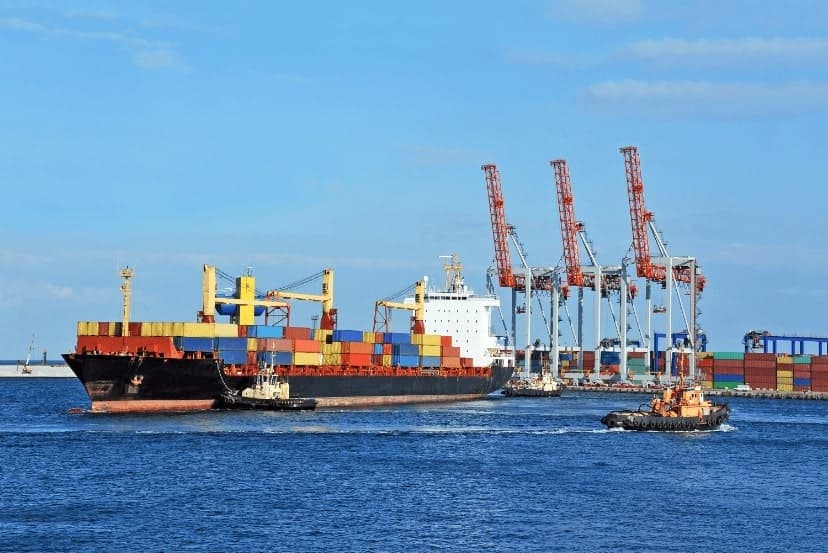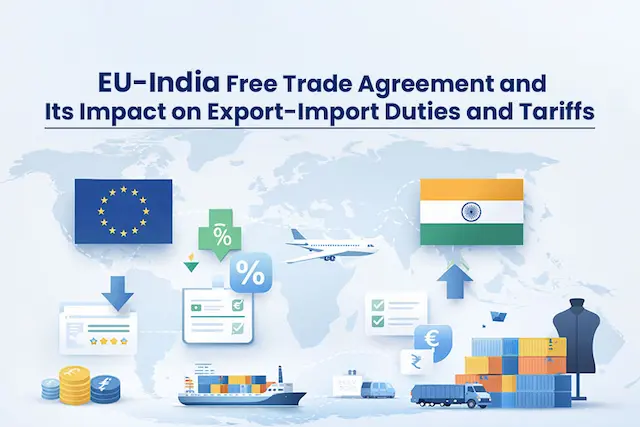In the big world of global trade, where businesses aim to grow, there are tricky risks that can catch even the smartest companies. Imagine this: a company tries to do deals with other countries, wanting to sell more and meet global needs. But hidden below the surface are problems like money values changing, not getting paid, and countries not getting along.
Here steps in export factoring, like a money helper that keeps businesses afloat in tough times and turns risks into chances. Think of it as a skilled captain steering a ship through unpredictable seas. Export factoring is like the ship’s guide, reducing risks and making it easier for businesses in global trade.
Let’s uncover how this money tool becomes the compass that leads companies to success in the big world of global business.
What is Export Factoring?
Export factoring is a financial arrangement that provides a solution to some of the challenges faced by businesses engaged in international trade. It is a form of receivables financing where a company sells its accounts receivable (invoices) to a third-party financial institution, known as a factor, at a discount. This financial transaction helps the exporting company to receive quick cash for its sales rather than waiting for customers to make payments, which can often be delayed, especially in cross-border transactions.
How Export Factoring Works?
The process typically unfolds as follows:
Agreement with a Factor
The exporting company, often referred to as the “client” or “seller,” establishes an agreement with an export factor. This financial institution specializes in providing export factoring services.
Delivery of Goods or Services
The exporting company delivers the agreed-upon goods or services to the foreign buyer. Simultaneously, the seller generates an invoice that outlines the terms of payment.
Submission of Invoices to the Factor
The exporting company submits the invoices for the delivered goods or services to the export factor. These invoices serve as the collateral for the factoring arrangement.
Advance Payment
Upon receiving the invoices, the export factor conducts an assessment of the creditworthiness of the foreign buyer. Based on this evaluation, the factor may provide an advance payment to the exporting company. The advance payment is a percentage of the total invoice value, and the specific percentage can vary.
Credit Protection and Collection
The export factor assumes responsibility for managing credit risk and collecting payments from the foreign buyer. This includes monitoring the buyer’s creditworthiness and, in some cases, providing insurance against non-payment due to buyer insolvency or default.
Payment from the Buyer
The foreign buyer makes the payment according to the terms specified in the invoice. This payment is made directly to the export factor.
Final Settlement with the Exporter
Once the factor receives payment from the buyer, it deducts its fees, including the discount applied to the advance payment, and any other applicable charges. The remaining amount is then transferred to the exporting company.
Reporting and Record-Keeping
Throughout the process, the export factor provides the exporting company with detailed reports on the status of its accounts receivable and the collections process. This transparency helps the exporter stay informed about the financial aspects of its international transactions.
Advantages of Export Factoring
Export factoring offers several advantages for businesses engaged in international trade. Here are key benefits that make export factoring an attractive financial solution:
Improved Cash Flow
Export factoring provides an immediate injection of cash by advancing a significant percentage of the invoice value. This accelerates cash flow, allowing businesses to meet immediate financial obligations, invest in growth opportunities, and cover operational expenses.
Risk Mitigation
Export factors assume the credit risk associated with international transactions. In non-recourse factoring, the factor absorbs the risk of non-payment due to buyer insolvency or default, providing businesses with protection against potential losses.
Professional Collections Services
Export factors often have expertise in international collections, including knowledge of local customs and regulations. Outsourcing collections to the factor ensures efficient and professional management of receivables, reducing the likelihood of payment disputes and improving overall cash flow.
Credit Information and Evaluation
Export factors assess the creditworthiness of foreign buyers, providing valuable insights into the financial stability of trading partners. This information enables businesses to make informed decisions about extending credit terms and managing risk in international transactions.
Global Market Access
Export factors may have a network of offices or partners in various countries, offering businesses access to a broader market. This can facilitate market expansion and the exploration of new opportunities in different regions.
Currency Risk Management
Some export factoring arrangements include protection against currency fluctuations. This is particularly beneficial for businesses dealing with transactions in different currencies, as it helps mitigate the impact of adverse exchange rate movements.
Efficient Receivables Management
Outsourcing receivables management functions to the export factor allows businesses to focus on their core operations. This operational efficiency can lead to time and cost savings, as well as a reduction in the administrative burden associated with credit management and collections.
Flexible Funding Structure
Export factoring offers a flexible funding structure that aligns with the sales volume of a business. As sales increase, the available funding also grows, providing businesses with scalability to support their evolving financial needs.
Leverage on Expertise
Export factors bring specialized knowledge and experience in international trade and finance. By leveraging this expertise, businesses can navigate the complexities of global markets more effectively, making informed decisions and mitigating risks.
Competitive Advantage
Access to export factoring services can provide a competitive edge for businesses in the international marketplace. The ability to offer attractive credit terms and secure reliable cash flow enhances a company’s position in negotiations and strengthens relationships with overseas customers.
How Export Factoring Can Mitigate Risks in International Trade?
Export factoring serves as a robust risk mitigation tool in the realm of international trade, addressing various uncertainties and challenges that businesses may encounter. Here’s a breakdown of how export factoring effectively mitigates risks in the context of global commerce:
Immediate Cash Flow
- Risk Addressed: Payment Delays
- Mitigation Strategy: Export factoring provides immediate cash to the exporting company by advancing a significant portion of the invoice value. This mitigates the risk of delayed payments, ensuring that the business has access to funds promptly.
Credit Risk Transfer
- Risk Addressed: Buyer Insolvency or Default
- Mitigation Strategy: The export factor assumes the responsibility for assessing the creditworthiness of the foreign buyer. In case of non-payment due to buyer insolvency or default, the factor may absorb the loss (in non-recourse factoring), thereby transferring the credit risk from the exporting company to the factor.
Professional Collection Services
- Risk Addressed: Collection Challenges
- Mitigation Strategy: Export factors often have expertise in international collections. By outsourcing the collection process to the factor, the exporting company benefits from professional and efficient collection services, reducing the risk of payment disputes and ensuring a smoother receivables management process.
Currency Fluctuation Protection
- Risk Addressed: Currency Exchange Rate Risks
- Mitigation Strategy: In some export factoring arrangements, factors offer protection against currency fluctuations. This can be particularly valuable when dealing with transactions in different currencies, as it shields the exporting company from potential losses associated with adverse changes in exchange rates.
Global Market Knowledge
- Risk Addressed: Geopolitical and Regulatory Risks
- Mitigation Strategy: Export factors often have a broad understanding of global markets, including geopolitical and regulatory landscapes. This knowledge helps businesses navigate complex international environments, reducing the risk of unforeseen challenges related to changes in laws or geopolitical tensions.
Focus on Core Competencies
- Risk Addressed: Operational Inefficiencies
- Mitigation Strategy: By outsourcing receivables management functions to the export factor, businesses can concentrate on their core competencies. This streamlined focus enhances operational efficiency and reduces the risk of errors or delays in credit management and collection processes.
In essence, export factoring acts as a multifaceted risk mitigation tool, offering financial stability, credit protection, and operational support for businesses engaged in international trade. By leveraging the expertise of export factors, companies can navigate the uncertainties of the global marketplace with greater confidence and resilience.
Powering Worldwide Success: Credlix’s Custom Export Financing for After Shipping Money
Credlix is really good at providing money solutions for exporting stuff, especially after you’ve sent it. We’re all about making your money situation better and helping you handle your cash flow. Our main goal is to make exporters strong and successful in the big global market.
Final Words
In summary, export factoring is a dynamic financial solution that not only accelerates cash flow and minimizes risks but also positions businesses for success in the complex landscape of international trade. Serving as a strategic compass, it empowers companies to navigate challenges, offering immediate financial support, professional collection services, and a competitive edge in the global marketplace. In essence, export factoring transforms uncertainties into opportunities, fostering resilience and prosperity for businesses on the world stage.
Also Read: What’s the Difference Between Invoice Discounting and Invoice Factoring?




